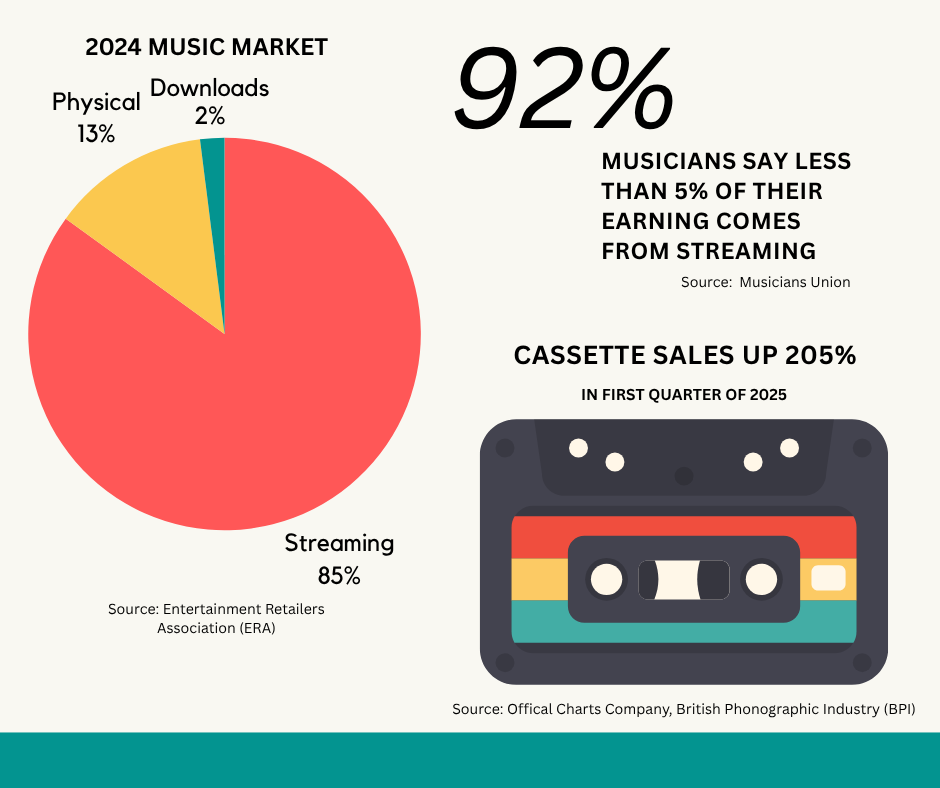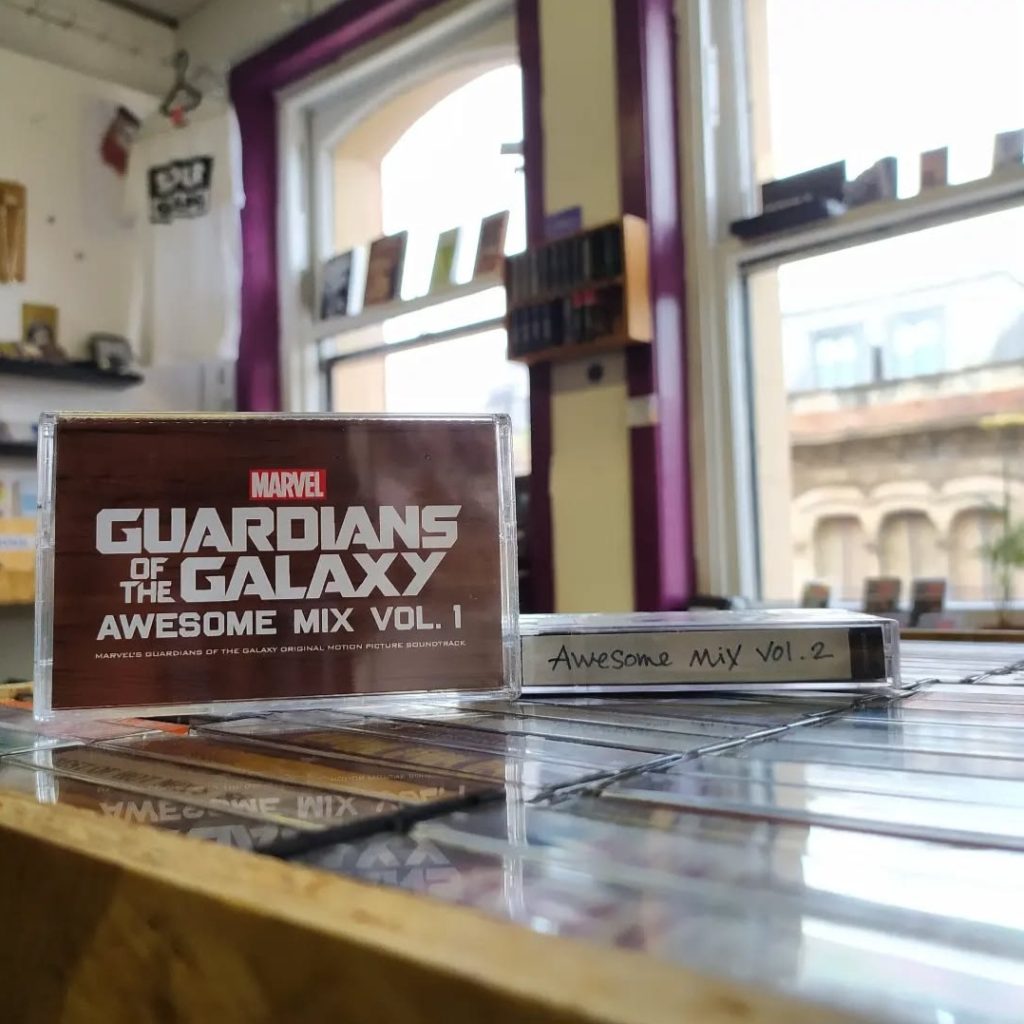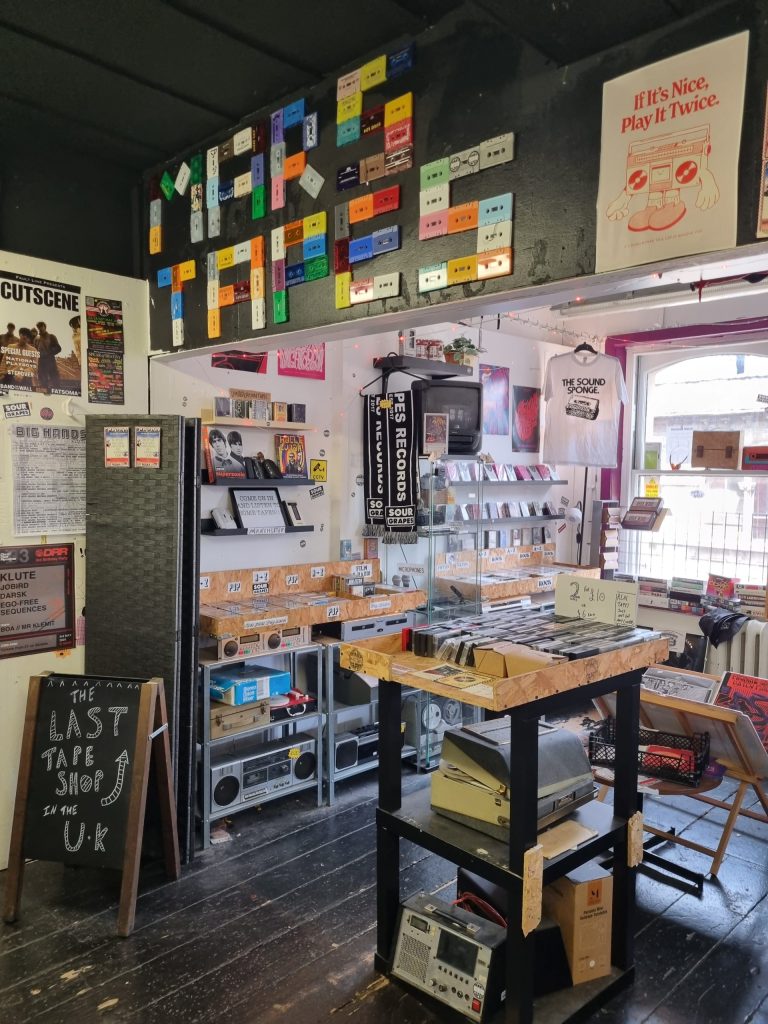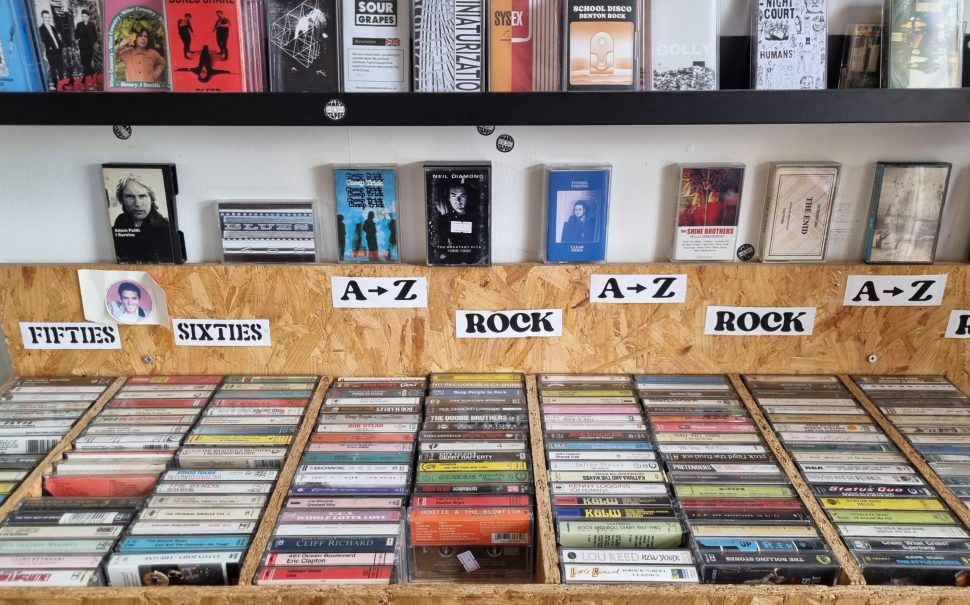Manchester’s iconic Afflecks is brimming with weird and wacky shops, from an anime maid café to tarot readings and occult clothing.
Yet nestled on the third floor of the shopping emporium is something truly unique – the only cassette shop in the UK.
Mars Tapes opened in 2019 and has expanded twice since due to demand. While a lot of record shops sell tapes, Mars Tapes is the only shop to exclusively stock cassettes.
And for co-owner Alex Tadros, it’s more than buying, selling and listening to cassettes. It is an act of rebellion, too.
“I hate what streaming giants have done to new and upcoming artists,” said Alex.
He might not be the only one.

According to Billboard, cassette tapes are experiencing a resurgence in popularity in the US, particularly among Gen Z.
Sales have seen a significant increase, with some reports indicating a 400% rise in sales between 2015 and 2022.
In the UK, tape sales surpassed six figures annually for the fourth consecutive year in 2023, reaching around 136,000 units according to Official Charts Company data. And in the first quarter of 2025, cassette sales were up 205%, according to British Phonographic Industry (BPI) figures based on Official Charts Company data.
With just 63,288 units, it remains a niche format, but the increasing sales suggest cassettes are at least experiencing some kind of interest.
But what’s the appeal?
The UK’s only cassette shop is co-owned by Giorgio Carbone, Alex Tadros and Borja Regueira Vilar.
“We used to have customers that were familiar with the format, and then a wave of young people started coming in,” said Borja.
“I think we caught it at the right time, cassettes are getting bigger now. I think when the market is oversaturated, people tend to go back to square one.
“At first the idea of opening a cassette shop in the UK seemed crazy.”
Alex and Borja agree that pop culture has helped create this burgeoning interest, referencing the series Stranger Things and Marvel films like Guardians of the Galaxy. In terms of best-sellers, hip-hop and metal come top.
Alex added: “Iron Maiden or Snoop Dogg won’t last long on the shelves.”
Interestingly, comparing the Official Top 20 biggest albums of 2024 with the Official Top 20 biggest albums of 2024 reveals a lot of overlap between the two and shows that mainstream pop sells best on cassettes.

In the UK, streaming comprised around 85% of the total recorded music market last year, while physical sales made up 13%, and downloads the remainder.
But 92% of musicians say that less than 5% of their earnings comes from streaming, says the Musicians Union.
For Alex, Borja, and Giorgio, the idea of forming Mars Tapes came from the fact they also own a record label, Sour Grapes Records.
Alex explained: “It was affordable to do en masse and created a real income for bands when compared to streaming.
“The shop was very much an outlet for these early cassettes as well as a foray into the cassette scenes from across the world – showcasing indie labels that would otherwise be inaccessible to UK music lovers.”
Dr Paul Welsby, a long-standing Mancunian DJ and cultural observer, believes cassettes’ roots in recording will put a ceiling on their revival.
“While vinyl and cassettes are both analogue music formats, they have different reasons for existing. When it comes to discussing the future of cassettes, it’s important to not lose sight of the fact that they were originally invented as a recording medium – not a listening medium,” he said.
“And I think this is an important distinction which will limit their appeal going forward.
“Historically, vinyl, invented in 1930, was the original mass market way for consumers to listen to music. Cassette tapes, on the other hand, were developed much later, in 1963, primarily as a more compact, portable, and low-cost alternative to reel-to-reel tape recorders for home and work recording.
“Their secondary benefit was that they could be used to provide listeners with a means of listening to music ‘on the go’, which was impossible for vinyl-based music.”
Whereas vinyl never really disappeared – kept alive by vinyl-only subcultures and a specialist but limited production of high-quality, high-end vinyl pressings to accommodate the specialist Hi-Fi market – cassettes pretty much did.

Vinyl’s resurgence is complex but Paul considers sound quality and nostalgia to be key. Other factors include major label support and tangibility.
“But if you look at my above logic for the resurgence in mainstream vinyl sales promoted by the major labels, collectors and nostalgia purchases do not have the same affinity for cassettes as they do vinyl,” said Paul.
“I suspect this is because cassettes didn’t become popular until some 30 years after vinyl had been the predominant medium.
“And to be honest, the 80s music scene is not looked back on with the same nostalgia and affection amongst music lovers and interest as the 1950s, 60s and 70s. Maybe it’s the boomer thing.

“The only area I can see where cassettes may be attractive is in the Indie sector.
“I have seen references that the increasing cost of vinyl, now that the major labels are involved, is going beyond the smaller independent labels.”
Concerns around the increasing cost of vinyl production is echoed by Alex, who mentioned that the base price for a standard vinyl record print is at least £2,000 up front, not including recording and artwork costs.
Paul concludes: “I suspect the main benefit of cassettes for smaller artists is that they can be produced in a very DIY way at much lower cost.”
Cassettes may be unlikely to experience the kind of resurgence vinyl has, but it seems cassettes are edging their way back on to the musical landscape. Which is good news, at least, for one DIY record label and shop on the third floor of Afflecks.
All media by Freya Thomson




